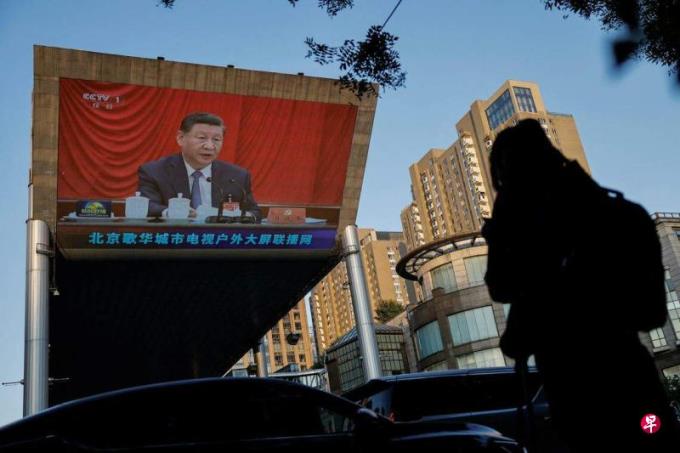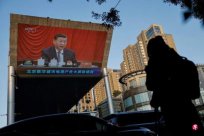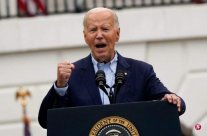
From 1992 to the present, China's exploration of the socialist market economy has accumulated 32 years of experience.In another 11 years, this economic system hopes to be fully completed.However, there are still questions at home and abroad for how socialism and a market economy are integrated.These questions directly affect the confidence of market entities, at least three aspects.
The Third Plenary Session of the 20th Central Committee of the Mainland Government, which has received widespread attention, has just ended.People pay attention to the Third Plenary Session because in the past 50 years, several Third Plenary Sessions have had an important impact on the development of the Chinese market economy.
At the Third Plenary Session of the Eleventh Central Committee in 1978, the leaders of the mainland government faced a situation where they were involved, reaching the consensus of the economy "to work internally, opening up to the outside world", and opened a green light for market -oriented reform.The success of rural economic reforms further persuaded the suspicion in the leadership, so that the bottom -up market -oriented reform was fully launched after 1984.
However, the socialist economy must be the concept of the planned economy, and it is still the mainstream in that year. In the end, the market's controversy of "surnames" or "surname" has never stopped.After three years of stagnation, the Dongfeng of Deng Xiaoping's southern tour, the 14th National Congress of the mainland government in 1992, finally established the goal model to establish a socialist market economy as the reform.The subsequent Third Plenary Session of the 14th Central Committee further clarified that the socialist market economy system "enables the market to play a basic role in allocation of resource allocation under the macro regulation of the country."China's market -oriented reform has since become a comprehensive reform of top -down and supporting facilities in various fields.
However, some emergency measures implemented by accident often have a long -term impact and formation path dependencies.During the period when the Chinese economy fell into a tightening of currency from 1998 to 2002, the central government hurriedly issued a mobilization order of "Bao Eight", which strictly ordered various local governments to complete the task of 8%of the economic year.This method of directly managing the economy by issuing the annual instructions has been abandoned since 1987, and now it has been picked up again.Since then, local governments at all levels have the task of "growth", and the government's intervention in the market can no longer be limited to the "macro -control" scope of the Third Plenary Session of the 14th Central Committee.
The global financial crisis in 2008 has also further shaken the determination of market -oriented reform.The development of state -owned enterprises is no longer limited to important industries that are related to national security and national economic life. Instead, they are expanded to the full competition industry and fields required to withdraw in the reform of state -owned enterprises.The pace of market -oriented reforms that lag for many years is also a small rain of thunder and heavy rain.The prospects of reform become blurred.
After the 18th National Congress of the Communist Party of China
In the context of such an era, the Third Plenary Session of the 18th Central Committee of 2013 proposed that the core issue of the reform of the economic system is to deal with the relationship between the government and the market, so that the market can play a decisive role in the allocation of resources.Good play to play the role of the government.The plenary session was well received at home and abroad, and it seemed to focus on the prospects of vague reforms.Optimistic people see that the Chinese government wants to make the market a decisive role in the allocation of resource allocation, which is more in place than the "basic role" of 1993.However, they ignored the statement of "better play the government's role" and did not notice that the government's means of intervention in the market was canceled.The subsequent experience shows that the government's intervention in the market is not only more and more micro, but also more and more dense.The role of the market in the allocation of resources is not even greater, but smaller.
In recent years, China's economic growth has stabilized, enterprises lack vitality, and the trend of shrinkage is obvious.People pay attention to the Third Plenary Session of the 20th Central Committee, and they want to see the clear direction of China's economic development.The plenary session proposed that the high -level socialist market economy system was fully built in 2035, which shows that the role of the market is still indispensable.From 1992 to the present, China's exploration of the socialist market economy has accumulated 32 years of experience.In another 11 years, this economic system hopes to be fully completed.However, there are still questions at home and abroad for how socialism and a market economy are integrated.These questions directly affect the confidence of the market entity, at least the following three aspects.
1. How to protect private property in the socialist market economy system?
The power of borrowing the market can improve economic efficiency and vitality.However, if the contract is not guaranteed and the personal property is not protected, the enthusiasm of production, investment and innovation will be seriously hit, the market will not be vitality, and the economy will not be prosperous.
Property protection is particularly important in the innovative economy.The production process of innovative products involves multiple participants in various parties. The time span is long. Today's transactions need to be benefited for a period of time.Compared with the simple market transactions of "one -handed money and first -hand delivery", these innovative products are "property right -intensive" products. They have very high requirements for the implementation of contracts and the protection of property rights.
The Chinese government has great power to protect personal property.However, those who exercise power themselves can abuse power and crack down on production and creation.Because the exercise of power is in the hands of tens of thousands of officials at all levels, their respective interest orientation is always affecting the exercise of power.China has strengthened anti -corruption since 2013. In the past 11 years, more than 200,000 cadres at or above the county level have been investigated and dealt with, more than 600,000 cadres at the township level, and more than 3.7 million cadres who have been punished by party discipline and government affairs.It is actually a very difficult thing to exercise the power and personal rights of enterprises and individuals in the market fairly and fairly.
Facing power, enterprises and individuals often feel weak.Will the revenue last year be required to return?Do you do a good legal business today, will you suddenly do not do it tomorrow?These problems often appear in daily life, affecting the confidence and decision -making of investors and consumers.
The Third Plenary Session of the 20th Central Committee proposed that the rule of law is an important guarantee for Chinese -style modernization. It is necessary to improve the security mechanism of equality in the face of the law.To achieve this goal, you must rely on two strength points.The first is to restrict the restrictions on the exercise of the state power, and truly achieve "the law cannot be authorized."The second is to strengthen the ability of enterprises and individuals to strive for their legitimate rights and interests, protect the freedom of rights, and enrich the effective ways to strive for rights.The key to the problem is that the two necessary reforms of government officials and the empowerment of rights defenders can be realized in the "socialist market economy system"?Is this one -scale organizational structure compatible with the society of rule of law?
What are the functions of local governments?
The debt issues of local governments in China have become increasingly prominent in the case of downturn in the real estate market and the rapid decline in land fiscal revenue. In recent years, it has become a hot issue.The formation of local government debt has its unique historical background, which is closely related to the economic role played by local governments.
As early as the 1950s, Mao Zedong called the Soviet Union's method of directly managing the economy by the central ministries and commissions as the "dictatorship", and advocated the management method of mobilizing the "combination of the bind" of the central and local enthusiasm.Chinese state -owned enterprises sometimes put them to provincial government management, and there are also product adjustment centers that are independent of the central plan.Although these practices make China's planned economy no scientific at all, it has also trained a number of local cadres with economic management experience.By the 1980s, the local government actively supported township and villages, developed local state -owned enterprises, and developed local state -owned enterprises, and played a positive role in the bottom -up market reform.
By 1998, the central government faced the method of seeking in a shrinking to mobilize local governments to maintain growth and order governments to ensure 8%of their annual economic growth.There are tasks of developing economy and attracting investment from provinces and cities to districts, counties, and townships.This command is difficult to execute, because local governmentsAfter the implementation of the taxation system, the financial difficulties are in financial difficulties, and it coincides with the strict restrictions on state -owned banks to strictly restrict the bad accounts.This situation has been completely changed after real estate has become a new pillar industry. Local government investment projects and infrastructure construction can not only be "land finance" formed by land selling, or use local financing platforms to raise debt.EssenceLocal governments began to engage in political performance and image projects, "using RMB to resolve the internal contradictions of the people", and irresponsible expenses have gradually accumulated a huge amount of local debt.
The governance system first clarifies the central local fiscal relations
Directly related to the debt issues of local government is the rapid rise in real estate prices, which is related to the motivation for local governments to increase land fiscal revenue.In addition, the incentive mechanism of land finance will also attract a large amount of resources to the real estate and infrastructure industry, so that the economic deformed development, exacerbate income inequality, and make the proportion of residents' income and consumption.decline.Once the local finances are difficult, the behavior of the local government will change. It will no longer extend the hand -help hands and the chickens with fats and eggs.
The above discussion explains that the behavior of local governments will have a profound impact on the entire country, and these actions are closely related to the tasks undertaken by local finances and local governments.At present, the idea of solving the financial difficulties of local governments is to expand the source of local taxes and make the local government's financial resources and rights power.
In foreign countries, real estate tax is the main source of taxes for local governments.However, the opening of China's real estate tax is facing heavy resistance, and the possibility of implementing the real estate market is very small.
The expansion of local debt is another reason that the right to affirm the local government is uncertain, and it will be arbitrarily expanded with the wishes of the superior government.In addition to maintaining growth, the habit of "central invitations and local buying payments", superiors issued tasks, and subordinates to find money to execute tasks, making the rights of local governments at all levels unclear, and local financial resources are difficult to match with their rights.
Does the role of local governments must include responsibility for local economic growth?What should I do when my superiors have no money to complete the task?Under the system of leaders of lower -level governments, how to clearly define the financial responsibilities of their respective and lower governments?The Third Plenary Session of the 20th Central Committee proposed that the national governance system and governance capabilities were basically realized in 2035.Clarifying the fiscal relationship between the central and local and local governments is the most important part of the national governance system.
What rules should the government interfere with the market?
The original idea is that the government intervention in the economy is indirect and achieved through macro -control.In the later practice, this indirect intervention is no longer promoted.The government's intervention is concentrated on the supply side, and some are concentrated on the demand side. Some intervene in supply and intervention demand. As a result, simulation market activities are formed, making it impossible for market forces to play a role.
In terms of industrial policy, the original idea is to "regulate the market and guide the enterprise in the market."The later approach was to direct the country's direct intervention of corporate activities.The country has the country's industrial policies, and governments at all levels of provinces, cities and counties also have their own industrial policies.
In terms of state -owned enterprises, it turned out to be "grasping the big and small", which limited the scope of business activities of state -owned enterprises to industries that are related to national security and the lifeblood of the national economy, and withdraw from the fully competitive industry.Later, the local governments layered "grabbing big and small", and the "small" of the superiors became the "big" of the lower level.Many state -owned enterprises have entered the competition industry and compete with private enterprises.
Government intervention has developed to the end today.Go up to the Central Ministries and Communist Party and the streets of townships. Whether it is a minister, or a tax bureau official, or a bank lender, it can have a direct important impact on enterprises.Entrepreneurs are most worried about such control risks.Especially when these interventions increased by layers with the changes in political environment and the improvement of national security requirements, the living environment of the enterprise deteriorated rapidly.
Many people think that government intervention and market regulation can be combined at will to form a "mixed economy".Hungarian economist János Kornai pointed out in 1992 that the proportion of government intervention and market coordination cannot be changed at will.Once the bureaucratic intervention exceeds the critical point, the market vitality will be devastated.
The Third Plenary Session of the 20th Central Committee hopes to "create a more fair and dynamic market environment to achieve the optimization and maximum efficiency of resource allocation."To achieve this purpose, we must formulate rules for government intervention, reduce intervention points, and avoid direct intervention.
It is said that the reform has entered the deep water area and requires hard bones.To achieve the goal of 2035, the above three issues cannot be avoided.Only by taking practical actions can help the market restore confidence and make the economy healthy.
The author is a local economist




